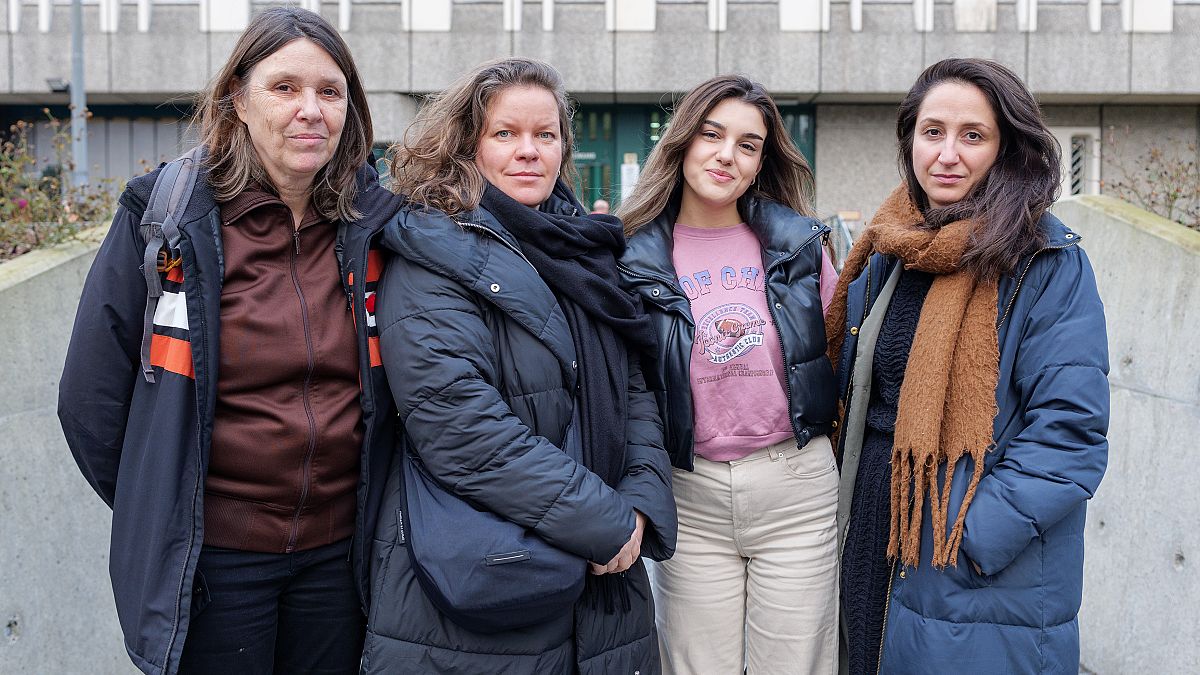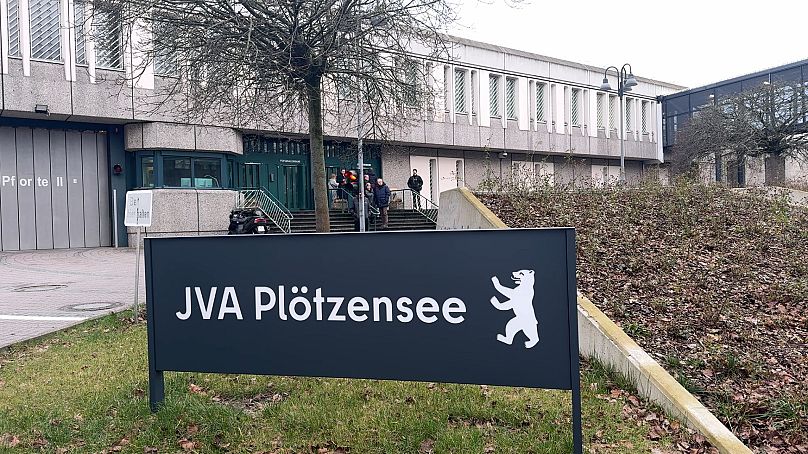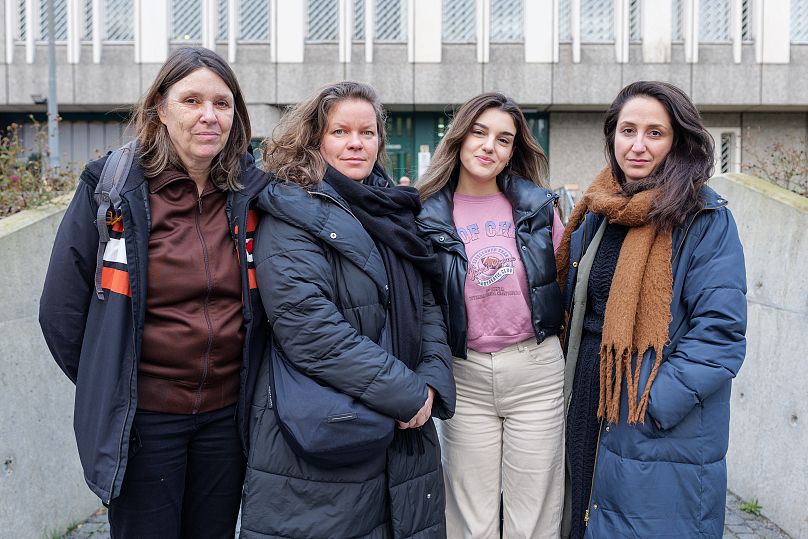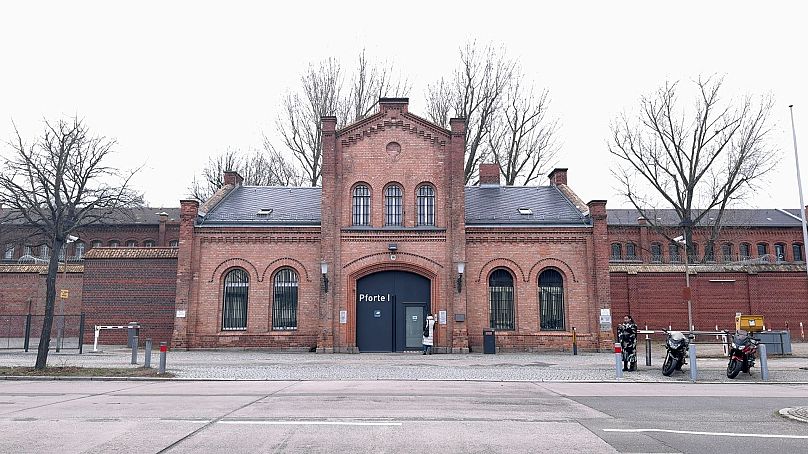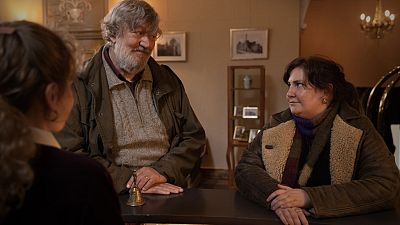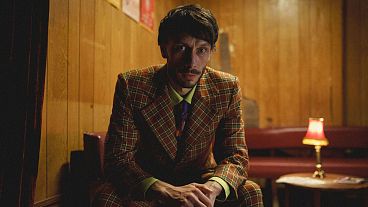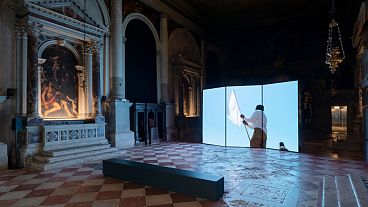There's been a special screening at the Berlinale of a film showing in a Berlin prison about a young girl who has not been dealt the best cards in life. Olivia Stroud went behind bars to find out more.
Elbow is a film based on a book of the same name by Fatma Aydemir. It opens with beautiful cinematography introducing the protagonist Hazal in a series of reflections in shop windows in Berlin. The Turkish-German is just a few days away from turning 18.
We get to know her through her unsuccessful search for an apprenticeship, as she encounters rejections and being fobbed off. In between, she’s accused of shoplifting make up in a drugs store.
Whether she’s guilty or not is unclear, but what is evident is the casual and systematic racism she endures. It’s subtly presented however as part of the background to her story: it’s not the cards she chose, but those that were dealt to her.
Across the tracks
We follow Hazal to the moment the film splits in two: a German man harasses her and two friends, also with migration backgrounds, at a train station before they beat him up. In self-defence, Hazal pushes him and he falls on the train tracks.
She flees to Istanbul to make a new life and forge a new identity. The viewers are confronted by questions of what it means to belong somewhere and where home is when you’ve been brought up with a different culture and speaking another language. It’s here that we are shown how it is to grow up in a country without citizenship, forever dragging around a fear that you could be deported, even for crimes you didn’t commit.
As we entered the prison in the afternoon, all attendees were instructed to leave all belongings, including phones, in lockers at the entrance. Six people were allowed into each corridor before one door behind was locked and another in front opened. We were hand searched by prison guards with metal detecting wands – not unlike in an airport - before being led to a room with red lights ominously flooding the front wall, where a projector had been set up. The curtains remained closed, but the shadows of the bars on the windows shone through.
Outgoing Berlinale director Mariette Rissenbeek sat at the front, along with the institution manager and the Berlin Senator for Justice. The film team, comprised of four women: Hazel (portrayed by Melia Kara), the director Aslı Özarslan, screen writer Claudia Schaefer and film producer Jamila Wenske, also sat at the front.
A captive audience
Just before the film started, around 20 low-risk inmates filed through and sat amongst the audience. It felt good to be part of this community event.
Once a year, the Berlinale stages one screening in the north-west prison. It is something for the prisoners to look forward to, something to break up the time they sit in jail with nothing else much to do and also a day to feel part of the community and society again.
There was also something special about seeing the faces of these inmates who sat quietly through the film, and visibly could relate to the protagonist: most of them also got dealt a bad hand.
Role revelation
At the end of the film, the Q&A session reveals that Kara was not a trained actress. She was scouted on the Berlin streets along with another friend, and after a year was given the role. Eyebrows shot up amongst the audience which clearly also found the acting to be so authentic that it was hard to believe this film was her debut. Before the inmates were shuttled out of the room, a few approached both the director and Kara to ask for autographs and to express their enjoyment of the film. One even appeared quite starstruck, mouthing “Danke” (thank you) at Kara from across the room with his hands on his heart.
Fizzling with reality and very believable dialogue, it’s a film that feels like a documentary, which is where Özarslan’s background lies.
With politics permeating ever more through culture, especially during the Berlinale festival, this film feels important to see, even without a prison setting. Hazal’s series of bad choices won’t work for everyone, but they will be a strong talking point, and the film has remained at the forefront of my mind since watching it.
With far-right politics are on the rise across Europe, and with casual racism still a prominent feature of German society, films that draw empathy for those that the system fails should be given priority.
